Content marketing
has always been changing, but with the growth of artificial intelligence (AI),
things are changing even faster. In 2025, AI is not just something from the
future, it’s a key tool for content marketers. It’s revolutionizing everything
from content creation to strategy optimization, enabling businesses to connect
with their audiences in smarter, more personalized ways.
Whether you’re a
marketer, business owner, or content creator, understanding how AI influences
content marketing will keep you ahead of the competition.
In this guide, we’ll
explore how AI is reshaping the content marketing landscape, using real-life
examples and expert insights you can apply to your own strategies.
The Role of AI in Content Marketing
AI is changing the
way content marketing works by automating repetitive tasks and offering new
ways to reach and engage audiences.
Here are some key areas where AI is making a
significant impact in Content Marketing:
- Content Creation: AI tools can now generate written
content, video scripts, and social media posts in minutes, making content
creation faster and more scalable. - SEO Optimization: AI analyses search behavior and
keyword trends to help businesses rank higher in search results and
attract more organic traffic. - Personalization: AI tailors content to individual
users based on their behaviour, preferences, and interaction history,
making it more relevant and engaging. - Predictive Analytics: AI helps marketers forecast future
trends, customer behaviour, and content performance, improving strategic
decision-making. - Chatbots and Virtual Assistants: AI-powered
chatbots engage customers in real-time, providing instant support and
recommendations based on user data. - Visual and Video Content Creation: AI tools make
it easier to produce high-quality images, videos, and graphics without the
need for a professional designer.
Let’s break down how AI is changing the content
marketing landscape in 2024.
AI-Powered Content Generation
How AI Creates Content
AI tools like ChatGPT,
Jasper, and Copy.ai use Natural Language Processing (NLP)
and Machine Learning (ML) to create content that feels natural and
human. These tools can write articles, blog posts, and even social media
content in minutes, adapting to the desired tone, style, and topic.
Benefits of AI-Generated Content
- Speed: AI can generate blog posts or articles
in minutes, dramatically cutting down the time spent on content creation. - Cost-Effectiveness: By automating content generation,
AI reduces the need for large content teams, saving businesses significant
resources. - Consistency: AI ensures that the brand voice
remains uniform across all content, even when scaling up production. - Scalability: AI enables businesses to create
more content, reach wider audiences, and grow their content strategy
without hiring additional staff.
Real-World Example: HubSpot’s Use of AI
HubSpot, a leading
marketing platform, has leveraged AI to generate SEO-optimized blog posts,
email campaigns, and chatbot interactions. This helps them maintain a
consistent connection with their audience while reducing manual effort and
increasing efficiency.
Case Study: AI in E-Commerce Content Marketing
Amazon uses AI to
personalize product descriptions and recommendations based on customer data.
This personalization has contributed to a 35% increase in sales by
providing shoppers with tailored product suggestions, significantly improving
conversion rates.
Supporting Data
A study from McKinsey
found that businesses using AI for content creation saw 40% greater
efficiency and 30% cost savings. These results highlight the
practical advantages AI can bring to content marketing.
Limitations and Challenges
While AI can generate content quickly, it’s not
perfect. Here are a few potential drawbacks:
- Lack of Creativity: AI-generated content can lack the
creative flair a human writer would provide. - Robotic Tone: Without careful editing,
AI-generated content may sound stiff or unnatural. - Fact-Checking: AI may not always deliver 100%
accurate information, so it’s crucial to verify facts before publishing.
AI in SEO Optimization
AI-Driven Keyword Research
AI tools like SEMrush, Ahrefs,
and Surfer SEO help marketers identify high-traffic keywords by
analyzing search trends and competition. AI-powered platforms take the
guesswork out of SEO, allowing businesses to target the right keywords more
effectively.
AI-Optimized Content Structuring
AI can improve your content structure by:
- Recommending headings and subheadings for better readability.
- Optimizing meta descriptions and title tags for higher
click-through rates. - Ensuring your content aligns with user search intent to
improve rankings.
Voice Search Optimization
With more people
using voice assistants like Siri and Alexa, optimizing content
for voice search is essential. AI helps marketers create content that answers
questions naturally, improving the chances of ranking for voice queries.
Statistical Insight: AI and SEO
A study from BrightEdge
revealed that businesses using AI for SEO saw a 60% increase in organic
traffic. This shows just how powerful AI tools can be in improving search
engine visibility and driving more traffic to your website.
AI-Driven Content Personalization
Why Personalization Matters
Personalization is
key to creating relevant content that resonates with individual users. AI
allows marketers to deliver highly personalized experiences based on user
behavior, preferences, and engagement history. This leads to higher engagement
and better conversion rates.
AI-Powered Recommendation Engines
Think of how Netflix
recommends your next favorite show. AI-driven recommendation engines work the
same way, offering personalized suggestions for blog posts, products, or
services based on user interests and behaviors.
Case Study: AI in Retail Personalization
Sephora uses AI to
recommend beauty products based on browsing and shopping history. This approach
has led to a 20% increase in conversion rates, as customers are more
likely to buy products they feel are tailored to their needs.
Supporting Data
According to a Salesforce
report, AI-powered personalization leads to a 25% increase in revenue
and a 30% increase in customer engagement, proving that personalized
experiences are key to boosting business performance.
AI in Predictive Analytics for Content Strategy
What is Predictive Analytics?
Predictive analytics
uses historical data to forecast trends, customer behavior, and content
performance. AI can help marketers predict the future direction of their
industry, identify trending topics, and optimize content strategies
accordingly.
AI-Driven Trend Analysis
Using tools like BuzzSumo
and Google Trends, AI can identify emerging trends and topics before
they go mainstream. This gives marketers a chance to jump on trends early and
stay ahead of the competition.
Statistical Insight
A Gartner
survey found that 72% of top-performing companies use AI-powered
predictive analytics to shape their content strategies, showing how critical AI
is for staying ahead in today’s fast-paced digital landscape.
AI-Powered Chatbots and Virtual Assistants
How Chatbots Enhance Customer Engagement
AI chatbots aren’t just for answering
questions—they can:
- Provide instant customer support, improving satisfaction.
- Recommend products based on user preferences and past
interactions. - Collect valuable feedback to refine future marketing
strategies.
Examples of AI Chatbots
- Drift and Intercom offer AI-driven
customer interactions for lead generation and support. - ChatGPT-powered bots provide personalized conversations
on websites or social media. - Facebook Messenger bots help businesses increase engagement
with customers directly on social platforms.
The Future of AI in Content Marketing
AI-Generated Interactive Content
The next frontier
for AI is interactive content, like quizzes, polls, and gamified experiences
that actively engage users. This is expected to increase user participation and
time spent on websites, leading to more meaningful interactions with brands.
AI and Augmented Reality (AR) in Marketing
Combining AI with Augmented
Reality (AR) is revolutionizing the shopping experience. For example, AI
can enable customers to virtually try on clothes or makeup before making a
purchase, creating more immersive and engaging marketing experiences.
AI-Powered Content Moderation
AI will continue to
help brands maintain a positive online reputation by automatically detecting
inappropriate content, false claims, and offensive material, ensuring that only
appropriate content is shared.
Conclusion
AI is transforming
the way businesses approach content marketing. By streamlining content
creation, personalizing experiences, and predicting future trends, AI is
helping marketers be more efficient and effective than ever before. However,
while AI can optimize and enhance your content, human creativity and
authenticity still play a crucial role in building a genuine brand voice.
As AI continues to
evolve, the key to success will be using it strategically to complement your
existing marketing efforts. By staying ahead of the trends and leveraging AI in
your content strategy, you can set your brand apart and achieve greater results.
Frequently Asked Questions (FAQ) About AI in
Content Marketing
1. How is AI changing content creation for
marketers?
AI is revolutionizing content creation by
automating many aspects of the process. Tools like ChatGPT, Jasper, and Copy.ai
can generate high-quality content in minutes, allowing marketers to scale their
content efforts without the need for large teams. This increases efficiency,
reduces costs, and ensures a consistent brand voice across all platforms. AI is
especially beneficial for repetitive content tasks like blog posts, social
media updates, and email campaigns.
2. Can AI really improve SEO, and how?
Yes! AI is significantly improving SEO by
helping marketers with keyword research, content structuring, and even voice
search optimization. AI tools like SEMrush and Ahrefs analyze search trends and
competition to suggest the best keywords to target, while AI-powered content
structuring ensures that your articles are optimized for search engines.
According to BrightEdge, businesses using AI for SEO saw a 60%
increase in organic traffic, demonstrating its effectiveness.
3. What are the main benefits of AI-driven
content personalization?
AI enhances content personalization by
analyzing user behavior and preferences, enabling businesses to deliver
tailored experiences that feel more relevant. For example, AI-driven
recommendation engines suggest products or content that users are most likely
to engage with, increasing customer satisfaction and boosting conversion rates.
A Salesforce report found that AI-powered personalization resulted in a 25%
increase in revenue and a 30% boost in customer engagement, proving
its powerful impact.
4. How can AI help with predictive analytics in
content strategy?
Predictive analytics uses historical data and
AI algorithms to forecast future trends, customer behavior, and content
performance. AI tools like BuzzSumo and Google Trends allow marketers to
identify trending topics early, giving them the opportunity to create timely,
relevant content that resonates with audiences. Gartner’s research shows
that 72% of top-performing companies are already using AI-powered
predictive analytics to shape their content strategies, helping them stay ahead
of the competition.
5. Are AI chatbots effective in engaging
customers?
Absolutely! AI-powered chatbots are more than
just simple tools for answering questions—they can engage customers in
meaningful conversations, provide instant support, recommend products, and even
collect feedback. This not only improves customer satisfaction but also
enhances overall user experience, leading to higher retention and conversion
rates. Examples like Drift, Intercom, and Facebook Messengerbots are proving to be valuable assets for businesses.
6. What role will AI play in the future of
content marketing?
As we move forward, AI will continue to shape
the future of content marketing in exciting ways. Expect to see more interactive
content powered by AI, such as quizzes, polls, and gamified experiences
that boost user engagement. AI combined with Augmented Reality (AR) will
offer immersive shopping experiences, allowing customers to virtually try
products before buying. Additionally, AI-driven content moderation will ensure
that brands maintain a positive reputation by filtering out inappropriate
content.
7. Can AI replace human creativity in content
marketing?
While AI can optimize and automate many aspects
of content marketing, human creativity remains irreplaceable. AI is a powerful
tool that can enhance content creation, improve personalization, and predict
trends, but it is the human touch that adds emotional connection, originality,
and authenticity to the content. The key to success is using AI strategically
to complement your creative efforts, not replace them.
8. How can small businesses leverage AI in
their content marketing efforts?
Small businesses can take advantage of AI by
using tools to automate time-consuming tasks like content creation, SEO
optimization, and email marketing. AI can help small teams scale their content
production and create highly personalized experiences for their audiences.
Tools like ChatGPT for writing and SEMrush for SEO can help small
businesses compete with larger organizations by improving efficiency and
visibility.

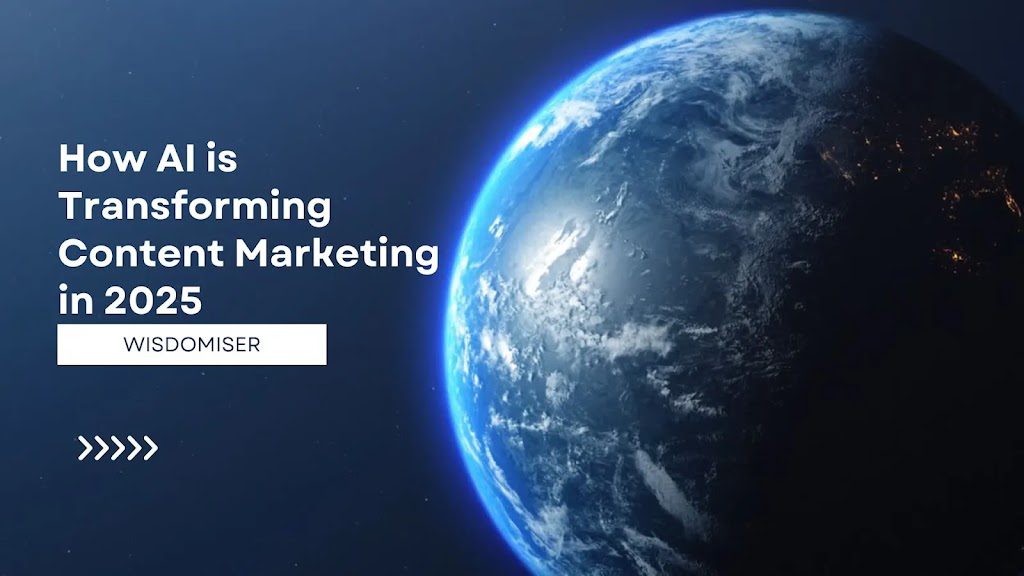
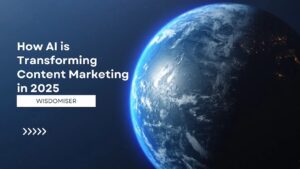
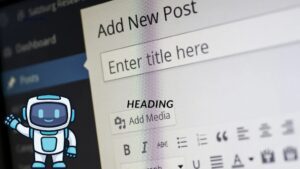


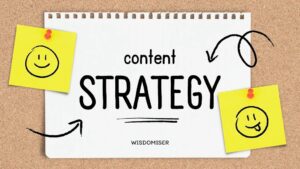
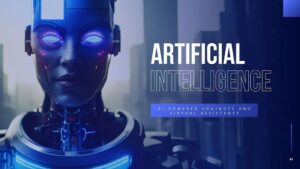
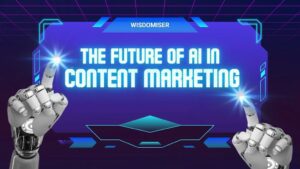
2 thoughts on “How AI is Transforming Content Marketing in 2025”